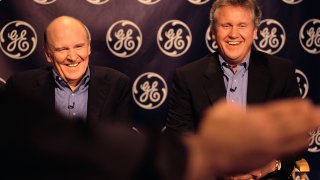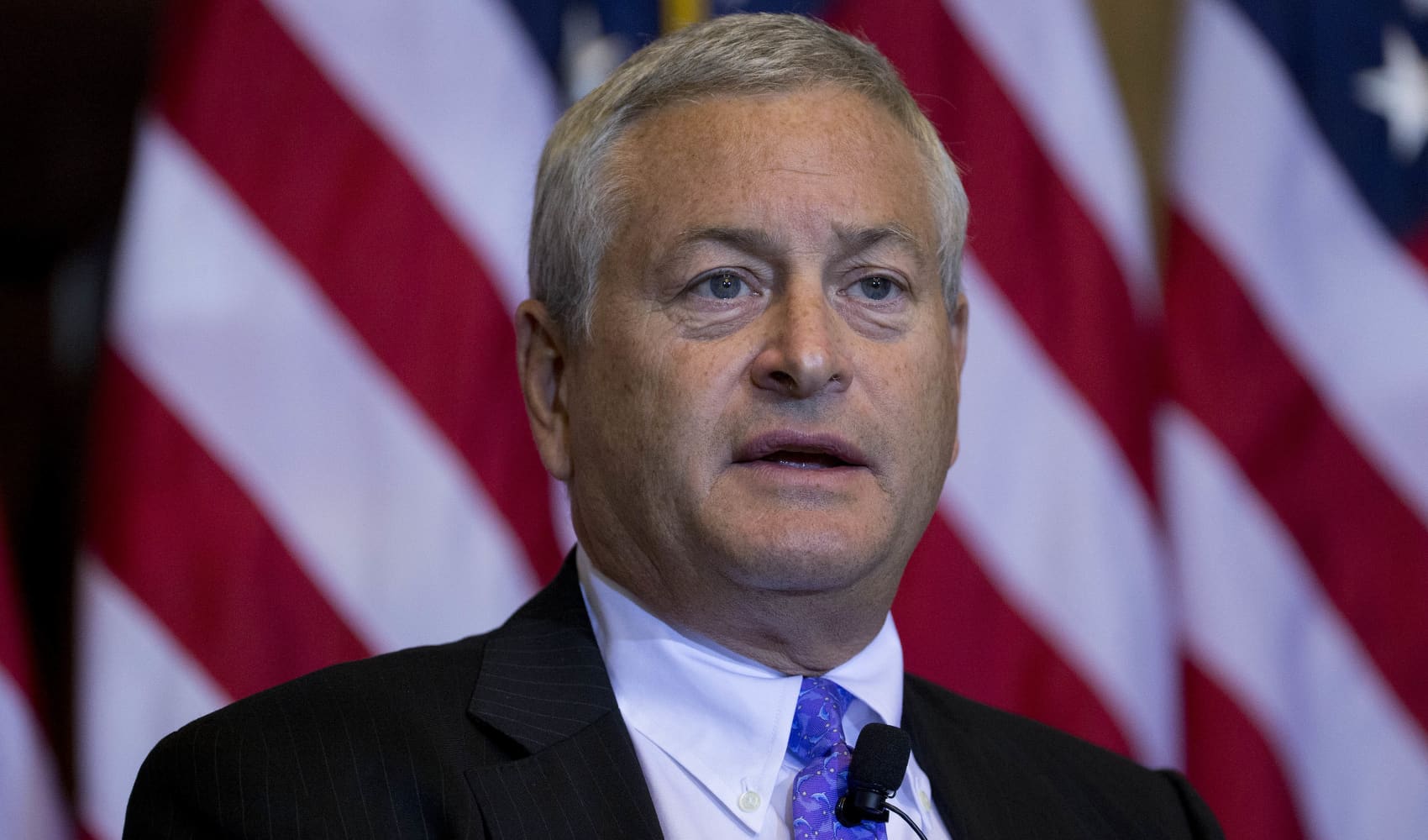
- Thomas Edison founded what became GE over 140 years ago and until the 1970s it was still building off an R&D foundation related to electricity.
- But the more it became a conglomerate making acquisitions predicated on the idea of general management expertise it was creating a "strategic pileup" and a "strategic smokescreen," says Yale leadership expert Jeffrey Sonnenfeld.
General Electric has not done much right in recent years, but its decision to split up into three companies should send a message to any corporate leader who still thinks building an industrial conglomerate is a good idea.
"It made no sense," Jeffrey Sonnenfeld, associate dean for leadership studies at Yale School of Management, told CNBC's "Squawk Box" on Wednesday. "It's from an era of highly diversified conglomerates which never made sense," Sonnenfeld said, adding they were less strategic and more "a strategic pile up of businesses."
Get Tri-state area news and weather forecasts to your inbox. Sign up for NBC New York newsletters.
GE already has been selling off individual businesses after years of struggling with debt and is now splitting up its main conglomerate businesses into three separate entities focused on energy, health care, and aviation, between 2023 and 2024. The health-care business will be the first to get spun off since work on a proposed initial public offering for the division a few years ago already exists.
For a company with well over 100 years of history dating all the way back to Thomas Edison's incandescent light bulb, GE began to lose its way after the 1970s when it was still building off an R&D base which was related to electricity, Sonnenfelt said.
Money Report
Moves into computing and CAD/CAM (computer-aided manufacturing); buying into the entertainment business (NBC); and investment banking and securities through the acquisition of Kidder Peabody, "they got way beyond themselves" the Yale leadership expert said.
GE CEO Larry Culp's pay package attracted serious scrutiny earlier this year, but he is finally earning it, Sonnenfeld said. "This breakup makes enormous sense. It's the best thing Culp has done," he said. "This sent the stock up because it's about time."
After trailing the market for two decades, GE's stock has been on the rebound this year and hit a three-year high following its split decision.
The Yale leadership guru said there are a few key lessons in the GE decision and end of the conglomerate era.
Conglomerates are not better at capital allocation.
Culp said this week on CNBC that the separate businesses will be able to allocate capital more effectively, and Sonnenfeld says the history of diversified conglomerates suggests that the GE CEO is probably right.
Citing companies including ITT, Gulf Western, Allied Signal, and Tyco International, he said, "These crazy strategic pileups didn't understand the efficiency of external markets."
Conglomerates including GE also have a spotty track record on acquisition pricing.
GE's own shareholders can buy separately into these businesses and "diversify themselves as they see fit," Sonnenfeld said.
Management expertise is not a core business model.
The Jack Welch model that GE continued for decades was predicated on the idea it has a strategic core of general management expertise. But that led the company to get into areas "where they weren't the best," he said.
Highly diversified conglomerates aren't only strategic pileups but a "strategic smokescreen," Sonnenfeld said. "Investors couldn't figure out what was going on," he added.
Gross debt is expected to fall below $65 billion by the end of 2021 and the separate energy company have the least debt, the company said in a call with investors this week. The spinoffs will cause about $2 billion in transaction and operational costs, GE estimated.
The trouble with a highly diversified company like GE is the strategic complications that ensue when a CEO thinks they can build and run a team to manage across disparate businesses, Sonnenfeld said, and that is where former chief executive Jack Welch went wrong. "They needed people with management expertise, labor markets, financial markets," he said. "[GE] diverted management time and attention."
Tyco is another cautionary tale in the history of the conglomerate experiments from decades past. Sonnenfeld noted it got into the baby diaper business and alarm systems.
At one time, Raytheon was even in the book publishing business. "It made no sense," Sonnenfeld said.
"Why are these heavy industry companies getting into books and baby diapers," Sonnenfeld said. "They had no expertise in these spaces."
Conglomerates don't go quietly or quickly.
Even with all of the issues, breaking up can be hard to do.
"I think as we've seen in so many instances outside of GE over the last decade, spinning good business heightens focus and accountability," Culp said in a call with investors and analysts this week.
Some key industrial competitors already have moved ahead of GE to pare back their conglomerate footprint.
Raytheon CEO Greg Hayes was previously United Technologies CEO — which included elevator company Otis and heating and cooling company Carrier — before he led a break up. United and Raytheon merged last year.
"It shouldn't be hard to break up what remains from the era of highly diversified businesses that didn't have a core to each other," Sonnenfeld said.
But it wasn't easy for Hayes either.
"How do you convince everybody that a conglomerate is a thing of the past?" Hayes said in a video on his effort to convince the company's board.






